-
 Switch to an Organic Shampoo to Give Your Hair and Scalp the Optimum Care it Needs: Top 10 Organic Shampoo Brands for 2019
Switch to an Organic Shampoo to Give Your Hair and Scalp the Optimum Care it Needs: Top 10 Organic Shampoo Brands for 2019
-
 Ready to Save Money and Power Your Home with Eco-Friendly Products in 2022? Go Green with 10 Sustainable Finds for Every Area of Your Life
Ready to Save Money and Power Your Home with Eco-Friendly Products in 2022? Go Green with 10 Sustainable Finds for Every Area of Your Life
-
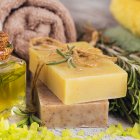 Soaps that Not Only Make You Smell Nice But Also Wipe Off Germs Effectively: Best Medicated Soaps You Can Buy in India (2020)
Soaps that Not Only Make You Smell Nice But Also Wipe Off Germs Effectively: Best Medicated Soaps You Can Buy in India (2020)
Why Should You Use a Charcoal Soap?
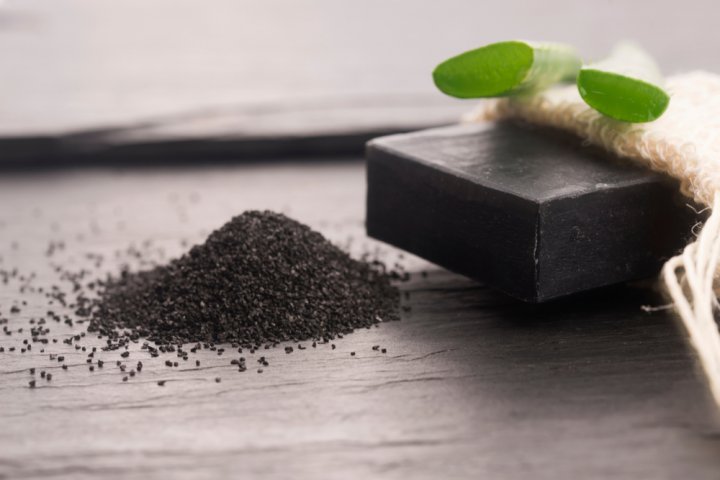
Charcoal is a rage these days that helps detox, purify and cleanse your skin. Its best for attending to a combination of oily and acne prone skin as well. With some unique properties, it can function both as a soap and a shampoo, and also treat hair conditions like dry scalp and dandruff. In addition to its amazing benefits, a black charcoal soap is absolutely inexpensive, produces a rich lather and gives a luxurious feel to your skin that makes you feel pampered. Activated charcoal soaps can be used every day just like any other traditional soap bar or body wash. But if you are in the habit of showering more than once, then it would be best to have another method of washing to avoid over-exfoliating your skin.
Homemade Charcoal Soap and Its Benefits
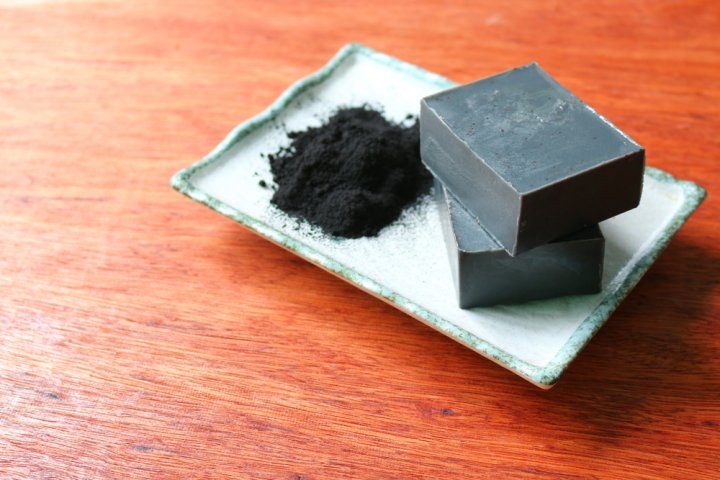
A homemade charcoal soap is essentially activated, meaning that it acts as an exfoliant which removes dead skin cells easily from the skin’s surface, leaving behind a smooth and radiant skin, firming it up and reducing any facial wrinkles or fine lines. The main ingredient in this homemade soap is activated charcoal powder which treats both blackheads and acne, removes toxins and gives you a fresh & clean look.
Types of Charcoal
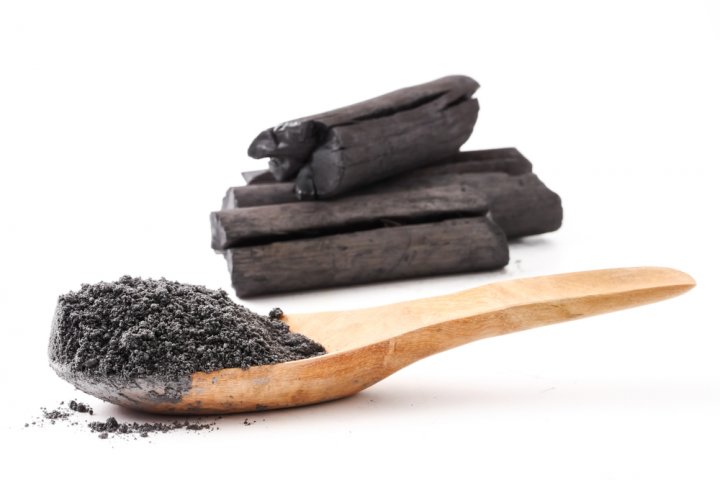
An excellent additive to soaps, scrubs, masks and more, charcoal is a popular skincare ingredient and comes in different types of which activated charcoal is the most renowned, followed by sugar charcoal, Japanese charcoal, etc., each of which have a different origin and method of production. Whilst, regular charcoal is extracted from wood, peat or coal and often used as a fuel, activated charcoal is mostly used for purification, medicinal or beauty processes.
How Charcoal Works
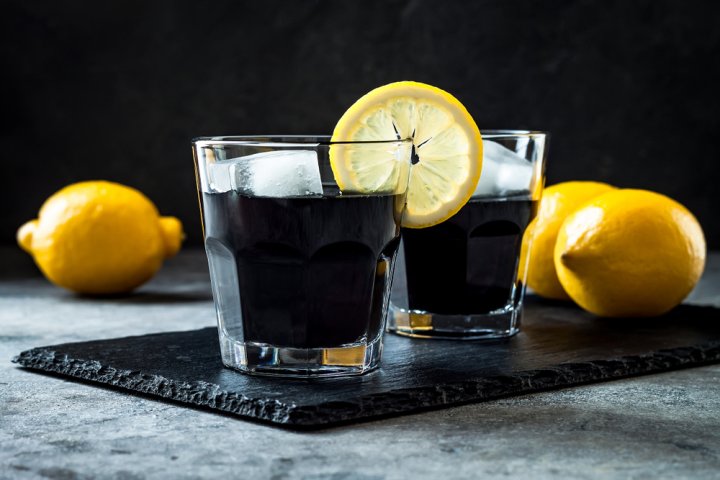
Activated charcoal binds other substances chemically to its surface and holds them there so that the molecules stick to the surface. Charcoal can actually adsorb 1000 times its weight. Having been in use for thousands of years, charcoal’s detoxifying properties were quite popular among native Americans and ancient Egyptians and it was also used in WWI in gas masks to prevent chemical poisoning of soldiers. Now, activated charcoal can not only treat stomach/intestinal issues but also absorb bacteria when you suffer from cold, remove bad breath and even ease a hangover!
Skin Benefits
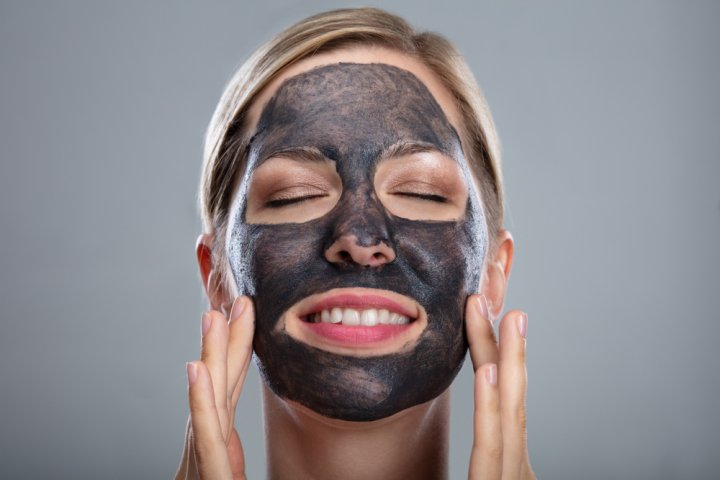
An activated charcoal cleansing soap can not only absorb excess oil but also cleanse your skin of all the dirt and grime. It has amazing properties of controlling facial oil, removing dead skin cells and making the skin clean and flawless. It is also highly beneficial in acne treatments and clearing any scars/marks which are left behind after the acne. A charcoal soap can also treat clogged pores of all dirt and pollution, restoring them to their natural size post cleansing. It can also make your skin firmer and taut at a faster pace.
Healing Benefits Too

Besides being an excellent exfoliant, a charcoal soap can also help treat skin conditions like psoriasis and eczema and is also effective in treating dry and cracked skin. It also prevents recurrence of such conditions. With the unique benefit of functioning both as a soap and as a shampoo, it can also help treat dandruff and a dry scalp.
Adding Charcoal to Bath and Beauty Products
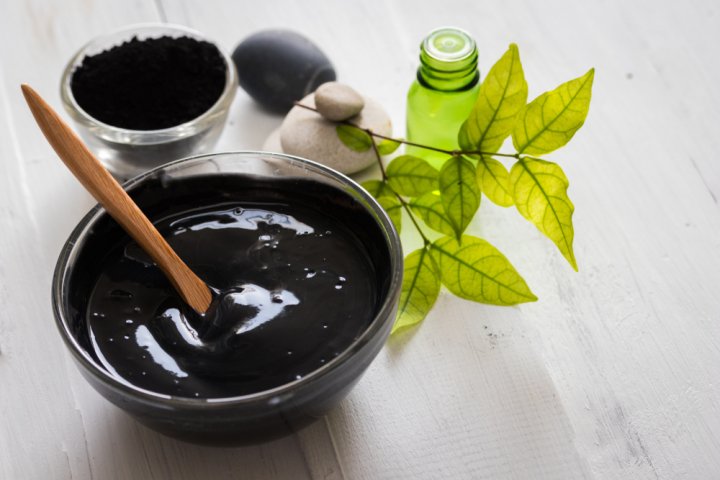
Fascinatingly, activated charcoal isn’t water soluble and adding polysorbate 80 blends it better with water. When you add charcoal to any product, dissolving it in oil aids in mixing it easily. For instance, use 1 tsp charcoal to 1 tbsp 99% isopropyl alcohol for a melt and pour soap and a lightweight liquid oil for a cold-processed soap. Activated charcoal can also be added directly to the melt n pour or cold process soap mix, but dissolving it helps eliminate any clumps.
Homemade Charcoal Soap (Melt and Pour Recipe)
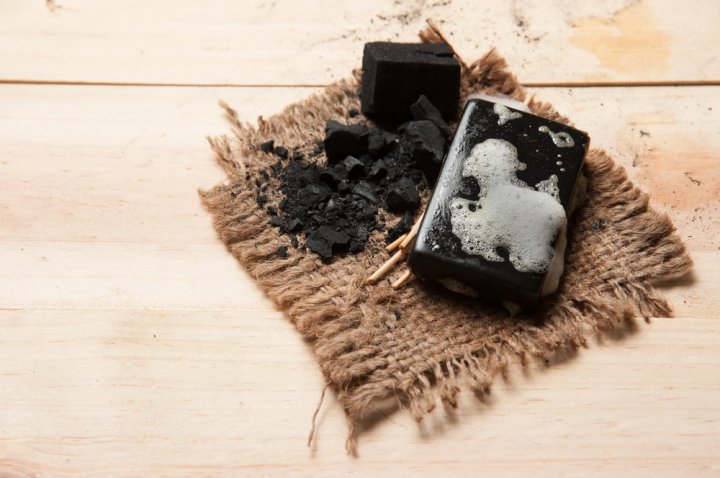
Ingredients:
- 5-6 pieces glycerine soap
- 2 tsp activated charcoal powder
- ½ cup water
- 1 tsp glycerine
- 1 tsp coconut oil
- 1 tsp rose essence
- 1 tsp aloe vera gel
- 1 tsp hand sanitizer
Method:
- Take the soap pieces and powder them.
- In a bowl, add the soap powder, water and mix.
- Next, add the activated charcoal powder and mix well.
- Now, transfer the entire mix to a pan and start cooking.
- Add glycerine to the pan with coconut oil and aloe vera gel as well.
- Now, add the hand sanitizer to the mix.
- The final step requires adding the rose essence to the mix.
- In terms of using these ingredients, you should know that aloe vera keeps your skin healthy and soft, while the hand sanitizer will dissolve any bacteria present in the soap pieces, and the rose essence will bring in a rosy fragrance to the mix.
- Now, transfer the soap mix to a soap mould and set it aside at room temperature.
- Let it dry and set and when its ready, go ahead and use it!
Homemade Charcoal Soap (Cold Process Recipe)
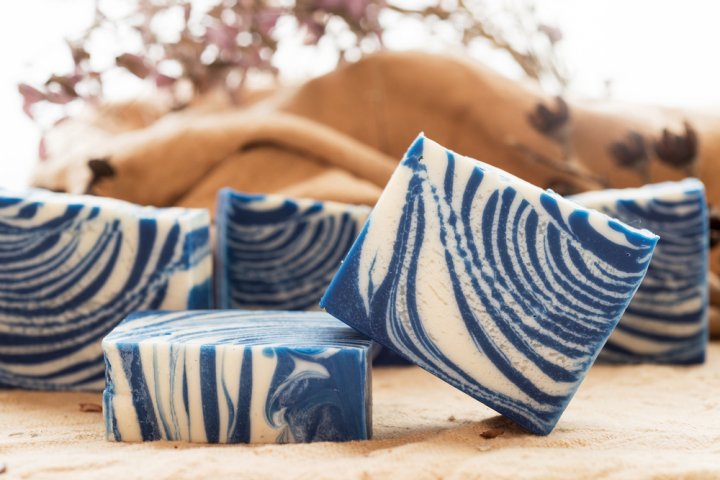
This cold process soap recipes includes the healing benefits of charcoal and lavender both for facial and body use and features a black and white swirl.
Ingredients:
- 10” silicone loaf mould
- Hanger swirl tool
- 3.3 oz (about 100 ml) cocoa butter
- 8.3 oz (about 250 ml) coconut oil
- 13.2 oz (about 400 ml) olive oil
- 8.3 oz (about 250 ml) palm oil
- 4.6 oz (about 130 ml) sodium hydroxide lye
- 9.8 oz (about 300 ml) distilled water
- 1.75 oz (about 50 ml) lavender 40/42 essential oil
- 1 tbsp activated charcoal.
Method:
- Measure the lavender oil into a small glass container and set it aside.
- Then dissolve the activated charcoal into 1 tbsp sweet almond/sunflower oil and blend to get rid of any clumps.
- Next, slowly and carefully add the lye to the distilled water and stir gently till it dissolves completely and the liquid becomes clear. Set it aside to cool down.
- In a large glass bowl, now combine and melt the coconut oil, cocoa butter, olive and palm oil.
- Once the lye water and oil mixes have cooled down to 130°F (about 54°C) or lower, then add the lye water to the oils and stick blend until you get a thin trace.
- Next, whisk the lavender oil, split off about 300 ml of the soap into a separate container.
- In a large vessel, add the dispersed activated charcoal and use a whisk to blend it in.
- Now, alternately pour the white and black soap into the mould until all of it has been poured.
- Insert the swirl tool into the soap and create 5-6 loops within, remove the tool and tap the moulds to get rid of any bubbles.
- Use a spoon to create a textured top.
- Now, spritz the top with alcohol to prevent soda ash and allow it to be in the mould for 2-3 days.
- Once ready, cut it into bars and let it cure for 4-6 weeks before using.
Side Effects of Using a Charcoal Soap?

Activated charcoal is excellent at trapping chemicals and preventing their absorption, and is mostly safe for use in adults, albeit short-term. However, it can have some side effects like constipation or black stools with some serious, however rare effects, like blockage of an intestinal tract, vomiting into the lungs and dehydration. It is best to use activated charcoal for short-term only, especially for women who are pregnant or lactating, as also those of you who have gastrointestinal blockages, should use it only after medical consultation.
Some of the Best Charcoal Soaps in the Indian Market
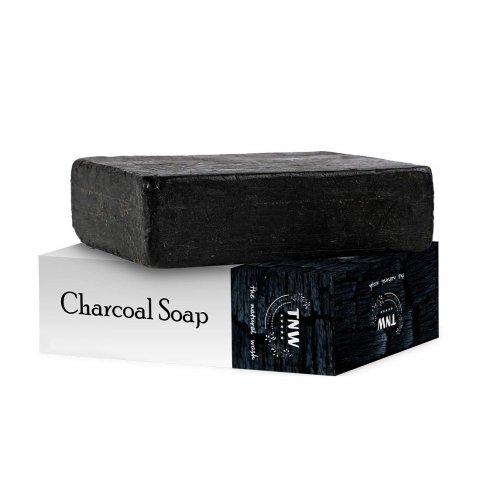
Renowned for its cleansing properties, charcoal’s organic and can attend to varied skin problems and some of the best activated charcoal soaps in the Indian Market include TNW (The Natural Wash) Handmade Charcoal Soap for blackheads and acne, Khadi Natural Herbal Charcoal Soap, Cinthol Charcoal Deep Cleansing Bath Soap, Bombay Shaving Company Charcoal Deep Cleansing Bath Soap, Divine India Charcoal Soap, Soulflower Deodorizing Charcoal Natural Cold Process Soap and Sage Apothecary Charcoal Handmade Soap.
-
 आपकी त्वचा क्यों इतना तेल उतपन्न कर रही है ? अपनी तैलीय त्वचा को ठीक करने के लिए भारत में इन शीर्ष 10 सर्वश्रेष्ठ साबुनों का उपयोग करें। (2020)
आपकी त्वचा क्यों इतना तेल उतपन्न कर रही है ? अपनी तैलीय त्वचा को ठीक करने के लिए भारत में इन शीर्ष 10 सर्वश्रेष्ठ साबुनों का उपयोग करें। (2020)
-
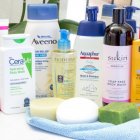 Get Rid of Excess Oil with Soap: 10 Best Soaps for Oily Skin and 5 Reasons Why Your Skin Produces Too Much Oil!
Get Rid of Excess Oil with Soap: 10 Best Soaps for Oily Skin and 5 Reasons Why Your Skin Produces Too Much Oil!
-
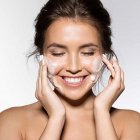 Curious to Tackle Acne with the Right Soap? 10 Best Antibacterial Soap to Help Ward Away that Wayward Zit in 2020
Curious to Tackle Acne with the Right Soap? 10 Best Antibacterial Soap to Help Ward Away that Wayward Zit in 2020
-
 Your Baby's Delicate Skin Needs Special Care, Pamper It with Only Natural Baby Products That are Toxin-Free and Completely Safe (2021)
Your Baby's Delicate Skin Needs Special Care, Pamper It with Only Natural Baby Products That are Toxin-Free and Completely Safe (2021)
-
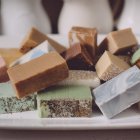 Soaps for Bright and Radiant Skin: 9 Dermatologist Recommended Soaps You Should Start Using Right Now!
Soaps for Bright and Radiant Skin: 9 Dermatologist Recommended Soaps You Should Start Using Right Now!
Make an Activated Charcoal Soap a Part of Your Beauty Routine
As you would have realised by now there are numerous benefits of using a handmade charcoal soap both for your skincare and haircare routine. We hope you will try out the melt and pour and the cold process recipes given above, to prepare your own charcoal soap at home and make it a part of your beauty routine. Stay connected with us for more such engaging content.

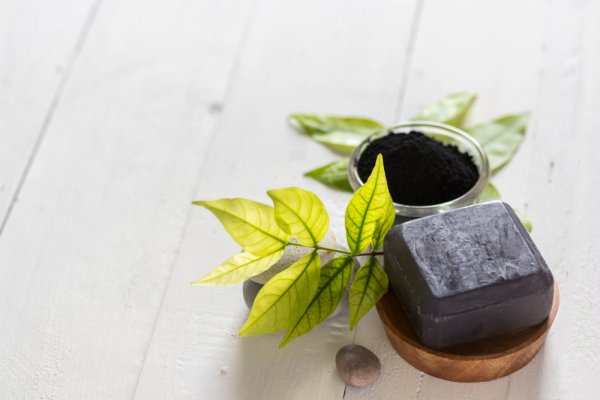
 Highlight the Best Facets of Your Incomparable Beauty: Discover the Best Face Highlighter Currently Available in India and Everything You Need to Know About Using Face Highlighters for Maximum Effect (2023)
Highlight the Best Facets of Your Incomparable Beauty: Discover the Best Face Highlighter Currently Available in India and Everything You Need to Know About Using Face Highlighters for Maximum Effect (2023)
 Forget the Blemishes and Get that Picture Perfect Flawless Radiance on Your Face: Check out the Best Foundations for Oily Skin Currently Available in India and Everything You Need to Know About Makeup Foundations (2023)
Forget the Blemishes and Get that Picture Perfect Flawless Radiance on Your Face: Check out the Best Foundations for Oily Skin Currently Available in India and Everything You Need to Know About Makeup Foundations (2023)
 Make Your Presence Felt Wherever You Go: Discover the Best Perfumes Under 2000 for Both Men and Women to Announce Your Arrival and Make Any Occasion Memorable (2023)
Make Your Presence Felt Wherever You Go: Discover the Best Perfumes Under 2000 for Both Men and Women to Announce Your Arrival and Make Any Occasion Memorable (2023)
 Protect Your Oily Skin from the Harmful Rays of the Sun: Discover the Best Gel Based Sunscreens for Oily Skin and Everything You Need to Know Before Buying One (2023)
Protect Your Oily Skin from the Harmful Rays of the Sun: Discover the Best Gel Based Sunscreens for Oily Skin and Everything You Need to Know Before Buying One (2023)
 Minor Blemishes and Wrinkles Affecting Your Confidence? Check out the Best BB Creams to Conceal Your Worries and Nourish Your Skin to Restore the Healthy, Radiant and Glowing Complexion Back Again (2023)
Minor Blemishes and Wrinkles Affecting Your Confidence? Check out the Best BB Creams to Conceal Your Worries and Nourish Your Skin to Restore the Healthy, Radiant and Glowing Complexion Back Again (2023)
